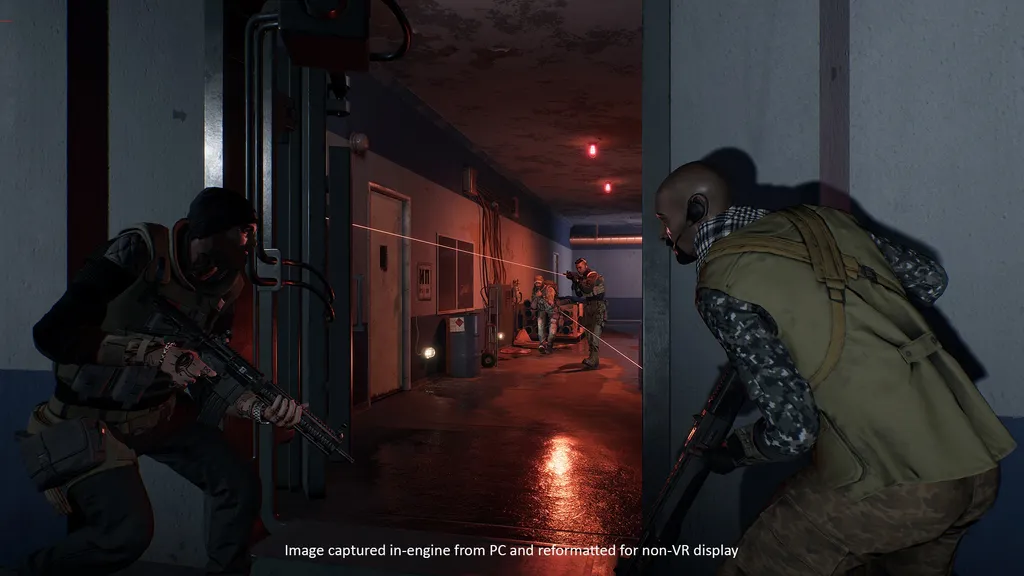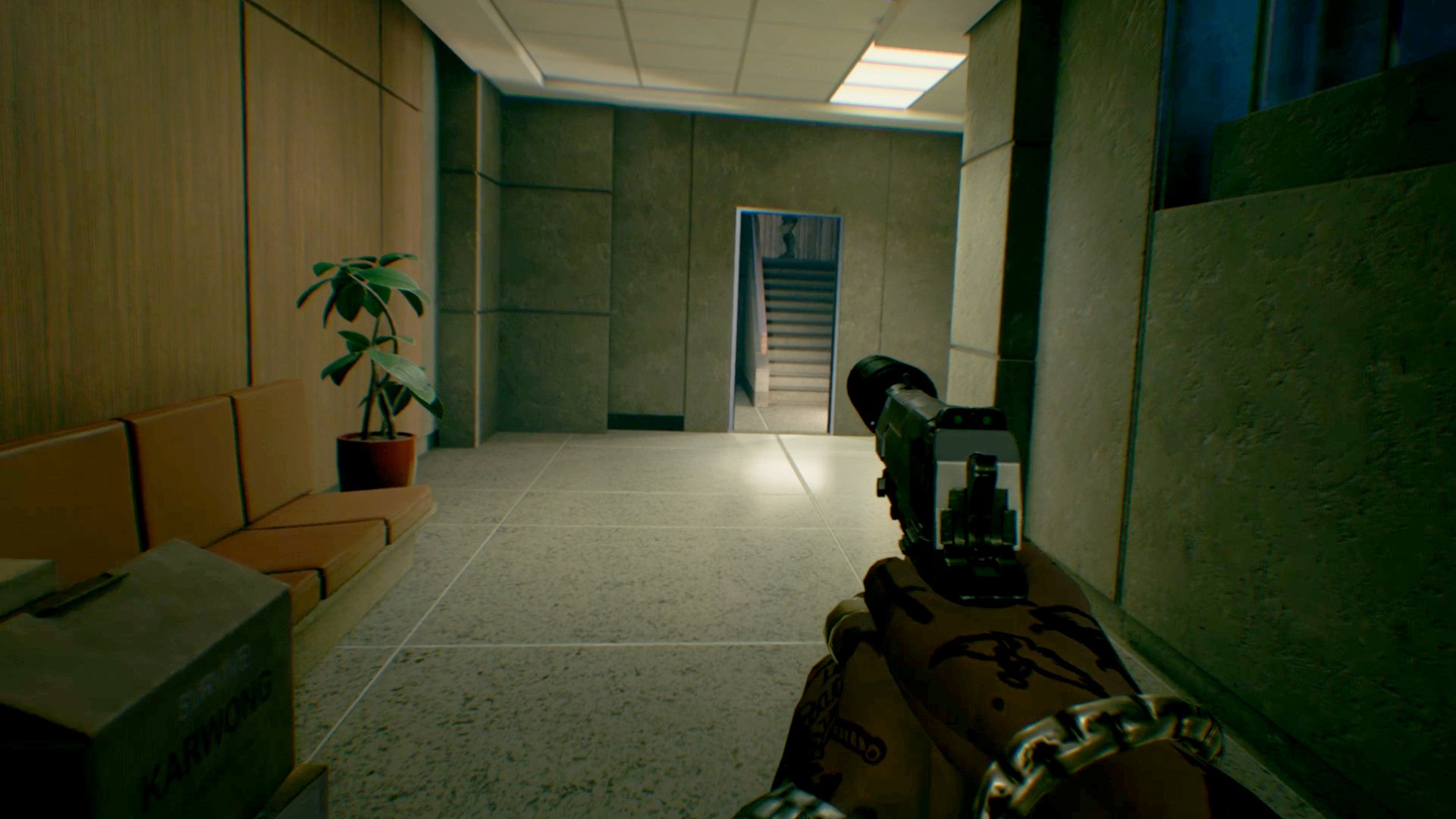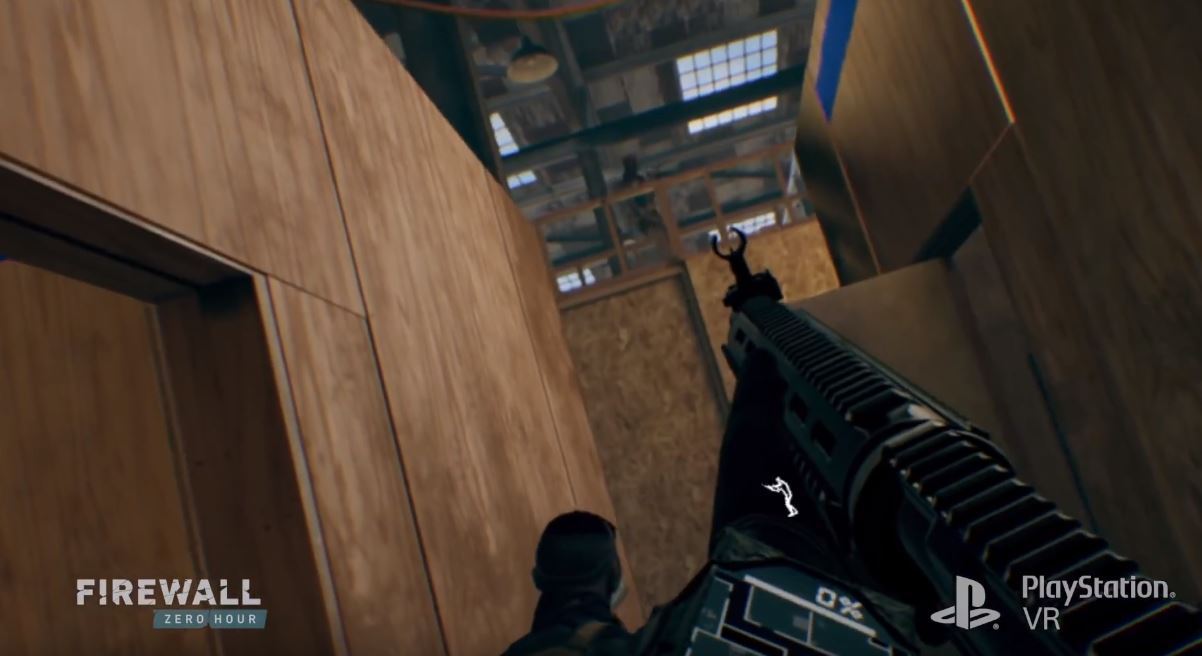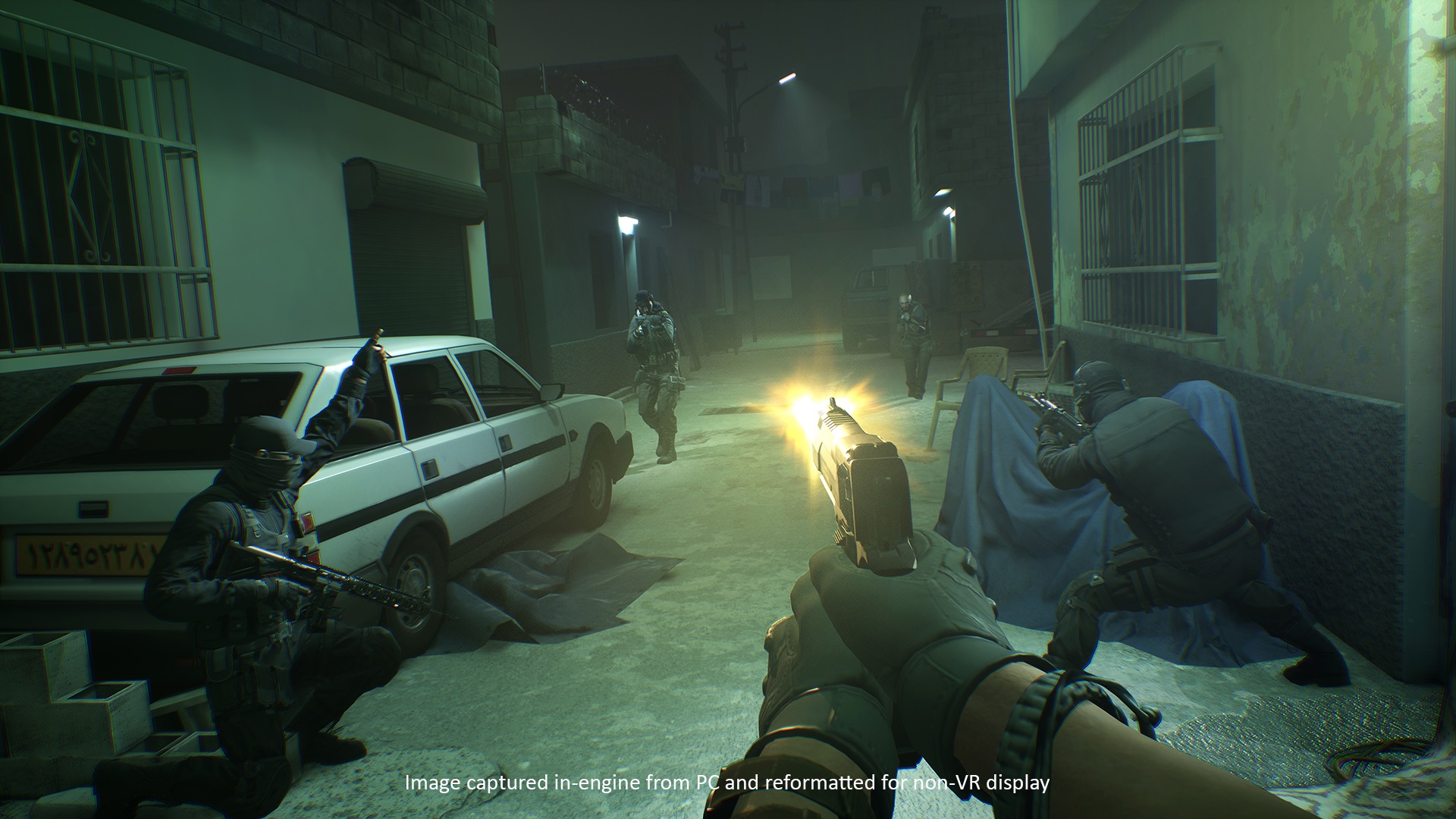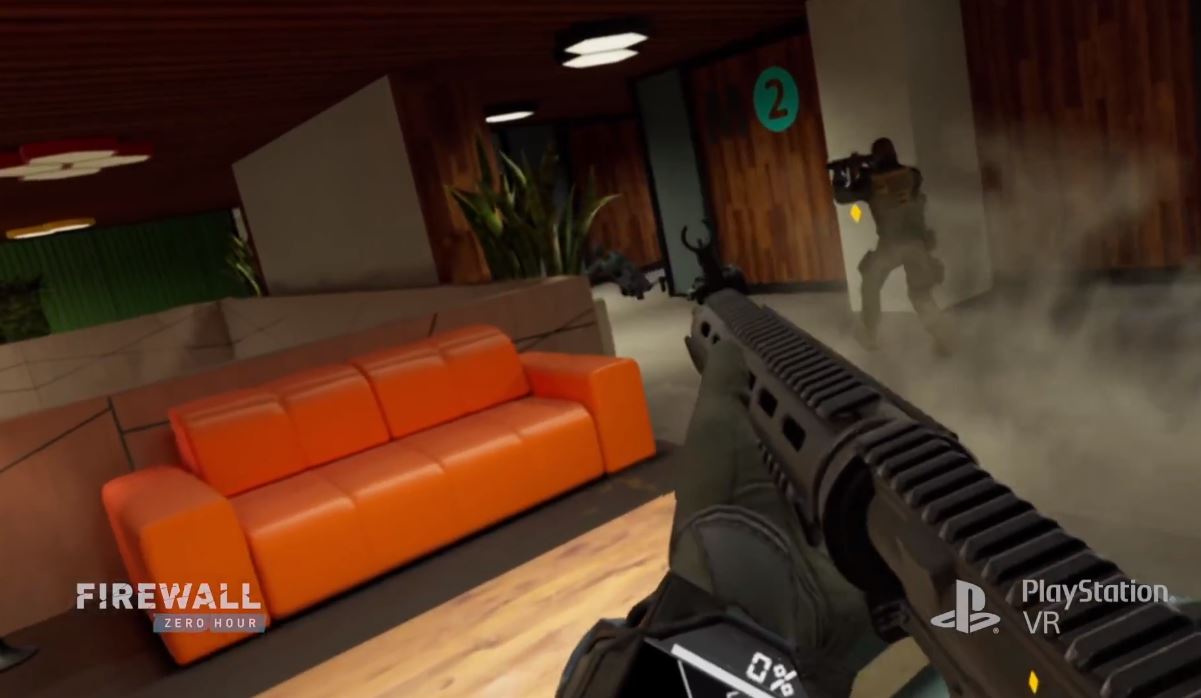I knew Firewall Zero Hour would be something special the very first time I got my hands on it almost a full year ago back at PSX 2017. After playing it at multiple events since then and spending several hours with it after launch, I can finally confirm that Firewall Zero Hour from First Contact Entertainment is the tactical, multiplayer-focused VR shooter we’ve all been waiting for and absolutely lives up to the hype.
Firewall Zero Hour Review
Note: This review was originally published on August 28th, 2018
The fact that an online-only, multiplayer-focused, PSVR-exclusive shooter that’s best played with an optional PS Aim Controller peripheral not only had a smooth, nearly bump-free launch, but is thriving with the community and exceptionally fun to play feels about as close to a miracle as is possible, but here we are.
Rainbow Six VR?
Anyone that’s played Rainbow Six Siege will be immediately familiar with the idea behind Firewall Zero Hour’s main game mode: Contracts. In this online PvP-only competitive contest, two equal teams of four players are pitted against one another with no respawns. Matches are five minutes long and the Attacking team must hack firewall access points to reveal the location of a laptop with top-secret intel on it, then steal that intel, and the Defending team must protect the laptop and/or wipe out the attackers. When you cut away all the filler, that’s what the entire game boils down to.
It sounds simple when described that way, but in practice it’s not only one of the most exhilarating VR games I’ve ever played, but one of the most fun games I’ve played period — VR or not.
You can do a Solo Training mode or Co-op Training mode, but they’re just wave-based matches against an endless stream of bots. As you level up it gets more difficult, but they’re called Training modes for a reason. The focus is on Contract PvP and if you buy the game for anything other than online multiplayer you’re gonna be severely disappointed. I’d advise you look towards Farpoint to scratch that itch.
The impact that VR as a platform has on the tactical shooter genre cannot be overstated. If you want to shoot around a corner in Arma, Rainbow Six, Ghost Recon, or any other non-VR shooter ever made, you typically need to either press a button to lean around, or poke your face out with your gun. When in VR, you can just reach around the corner using your actual hands to point the gun. It’s a literal game changer both tactically and for immersion.
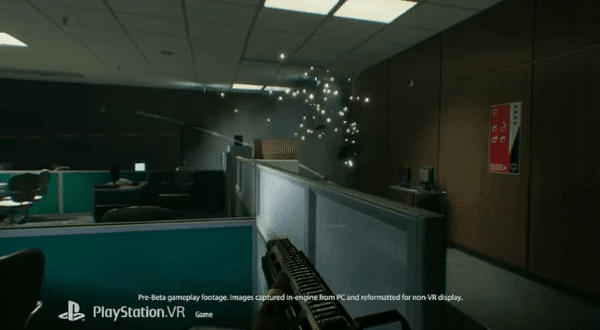
Aim Accuracy
To explain things further, when in VR you can fine-tune your aiming with slight adjustments to your wrist, tweaking your arm’s angle, shifting your shoulder, or just moving your head to line up the shot. Instead of being forced to rely on thumb dexterity, your actual marksmanship is being put to the test. This makes every moment-to-moment encounter significantly more intense and profoundly more rewarding.
If you own a Rift or a Vive then you’ve probably experienced a lot of this already through games like Onward, Pavlov, or even Stand Out: VR Battle Royale. But I am here to tell you that despite what those games have accomplished, none of them have nailed the polish, accessibility, and sheer tactical depth that the team at First Contact have with Firewall. This is a team of over 30 game industry veterans with experience working on the most popular FPS franchise on the planet and it shows. Each of those indie VR titles are great games in their own ways, but Firewall feels like a culmination of sorts; like the full evolution the industry’s been anticipating ever since VR headsets hit the market over two years ago.
Granted, making a shooter like this on the relatively limited PSVR hardware does have its drawbacks and concessions. For starters, it’s not a roomscale device and with a single tracking camera you’re limited in how much you can move even while standing still. If you turn around all the way then your controller will be occluded and if you reach up too high or down too low, the camera won’t be able to see what you’re doing anymore. This admittedly does limit how far the developers can push your sense of presence, but what you lose in VR capability is more than made up for in platform accessibility, user base size, and game polish.
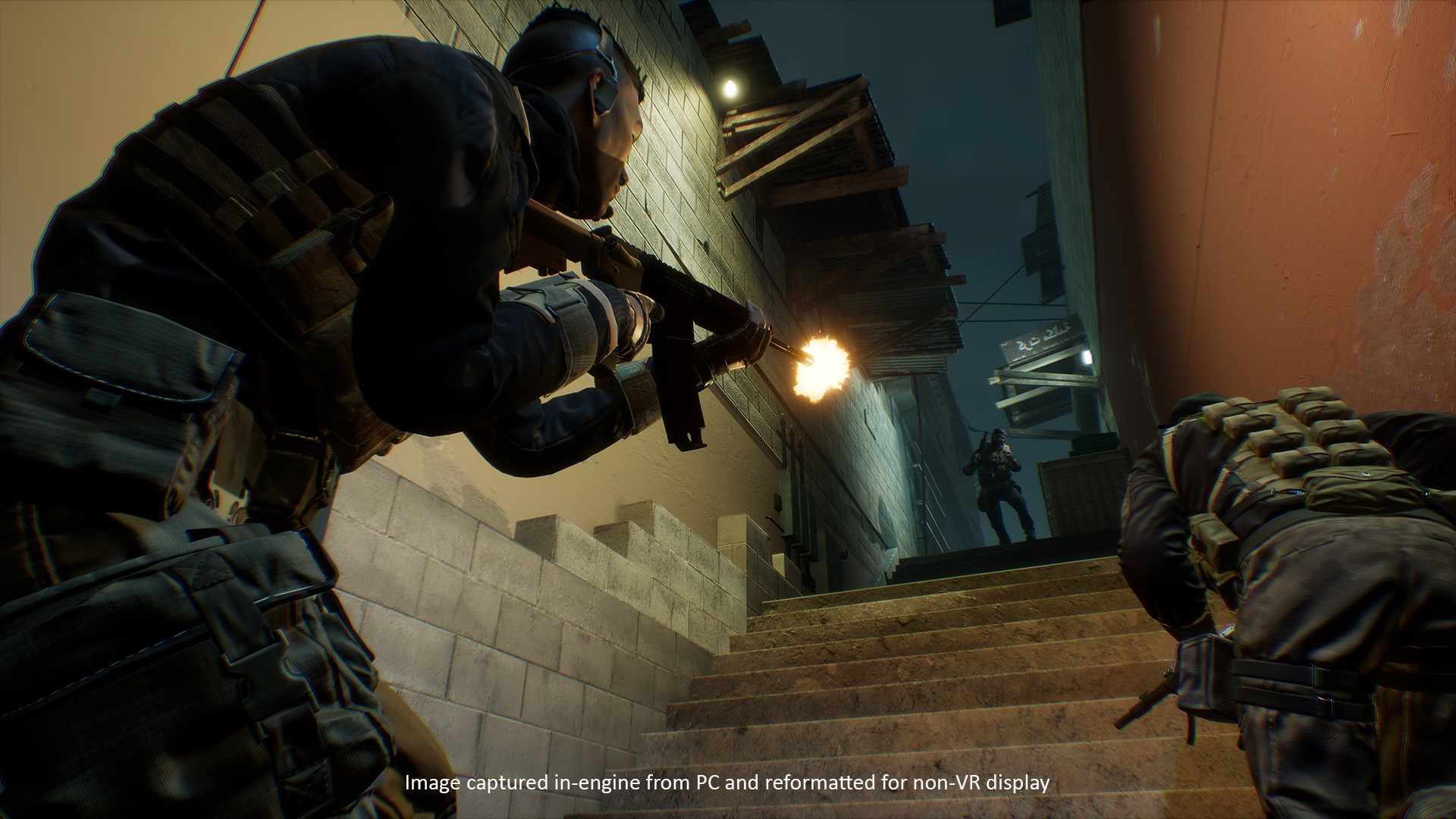
Technically you can play Firewall Zero Hour with just the DualShock 4, but you’d be missing out on the immersion of holding a gun-shaped peripheral while inside VR. Mechanically all the functionality is there since you just move the controller around and hold it up like a gun while playing, but it’s just not the same. You’ll get used to it eventually, but the PS Aim feels dramatically better.
One of the main areas that Firewall Zero Hour excels at that other VR shooters have faltered is a sense of progression. Everything you do in the game, whether it be full online PvP Contracts mode, Co-Op Training missions, or even just Solo Training missions, earns you XP and in-game currency. As you level up you unlock access to new guns, attachments, skins, abilities, and more. Once something is unlocked, you can then spend the in-game currency, known as “crypto”, to buy said items.
Onward and Pavlov don’t have any meta-level progression systems at all really. The difference is like walking into a store and being told anything on a desk is free for you to use, or walking into a mall and being told that you can earn access to several times more things with a bit of hard work. It’s much more rewarding.
Each of the 12 contractors look completely different and can be customized visually, plus they each have their own unique abilities such as faster magazine reloads, taking less bullet damage, or heightened enemy detection. As you progress you’ll unlock secondary abilities that can be equipped to further customize things — in addition to custom loadouts with individual stocks, grips, and other attachments on about a dozen different guns and equipment.
All nine maps are fantastic as well. They’ve got personalities all their own, plenty of variation within such as long corridors, multiple stories, tight corners, open spaces, rooms scattered with cover points, several entryways to key areas, flanking paths, and more. Every time you queue up a match the objectives are placed in randomized locations so it helps prevent the single game mode from feeling stale.
Honestly, if a non-VR shooter from a AAA developer launched tomorrow on consoles with this much depth for unlocks and progression, I don’t think you’d see anyone complain about a lack of options. The fact that a VR-only game has that degree of parity from a depth of choices perspective is impressive.
However, I do wish you could unlock and use those things more quickly. By the time I was level 10 (a solid few hours into the game even with the launch double XP turned on) I barely had enough currency to buy attachments for my first custom loadout and even then I wasn’t even close to matching (let alone surpassing) the gear of the pre-made load outs. Most guns cost upwards of 15,000 credits and you only earn about 600 for matches you win and 100 for matches you lose. That’s a lot of grinding.
In the time I’ve spent with the game so far (including late at night, early morning, and mid-day sessions) I’ve never had to wait more than a minute or two for a match to start. That small facet, the fact that people are playing, is taken for granted with most non-VR game launches but is already a significant step above almost all other multiplayer-focused VR game launches I’ve seen.
But if anyone from the development team is reading this, then one major request I have that I’ve already seen repeated in-game and across the web is for a way to decrease downtime between matches. Right now when you’re in a lobby with all eight people it takes about a minute for a match to start, followed by a loading screen. Then after a single round you’ve got a loading screen that sends you back to the lobby where it starts all over again.
What this game desperately needs right now is a way to quickly ready up and bypass the pre-match wait, as well as a round-based system instead of single matches. This way, you’d play with the same squad in a best of three or best of five series, swapping Attackers and Defenders back and forth without ever seeing a loading screen. Basically exactly what Rainbow Six Siege does.
In the future they’re reportedly planning to add more game modes if the community really wants that, but I’d settle for a single playlist that shuffles game modes to help keep the small player base together as well. Or, they could run limited events to feature alternate game modes as promotions with XP bonuses to incentivize players. I’d love for at least one more game mode, but I understand the need to not fragment the player base (yet). There is still a ton of room for improvement not because it gets so much wrong out of the gate, but because the foundation is so fantastic that I can’t help but fantasize about the possibilities.
Firewall Zero Hour Review Final Impressions
For what it is, Firewall Zero Hour defies the odds by delivering a multiplayer-focused VR shooter that actually lives up to its potential. If you don’t have a PS Aim controller yet, then you should buy one for this game even though it technically supports DualShock 4 as well. If you don’t have a PSVR headset yet, then you should buy one for this game. With a few improvements and additions, First Contact could turn what is already a must-have PSVR game into a genre-defining one.
Firewall Contact Hour is now available exclusively for PSVR for $39.99. For more on Firewall Zero Hour, make sure and read our full list of tips, info dump on the game, and watch our most recent livestream to see it in action. And check out these official review guidelines to find out more about our process.
What do you think of our Firewall Zero Hour review? Let us know in the comments below!

